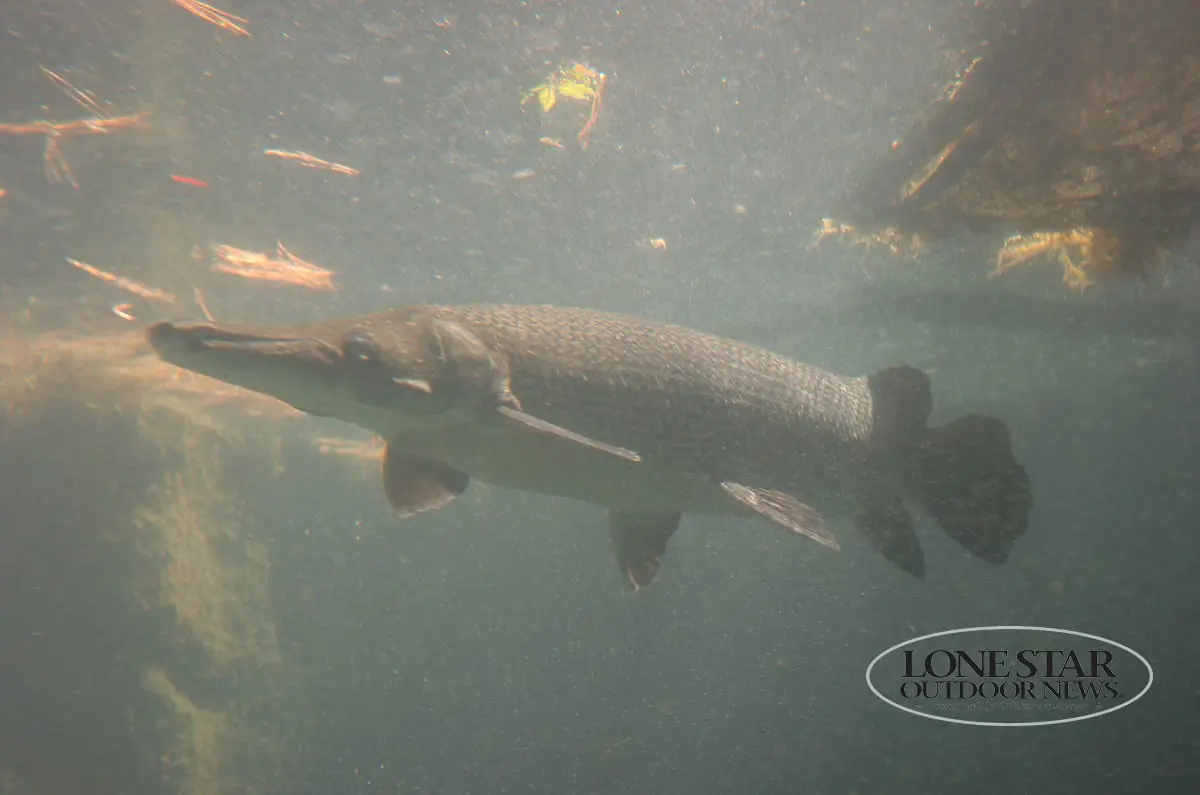Written by TPWD
Due to flooding conditions on the Trinity River, the Texas Parks and Wildlife Department is temporarily prohibiting fishing for alligator gar in portions of the river between the Highway 31 Bridge near Trinidad and the Highway 7 Bridge near Crockett.
TPWD Executive Director Carter Smith issued the emergency order on Tuesday, May 12, to temporarily prohibit taking or attempting to take alligator gar in order to protect spawning alligator gar, which is a species of conservation concern in the Trinity River. The order takes effect immediately and will remain in effect for not more than 30 days and can be rescinded before that date if conditions warrant. While the order is in effect, anglers cannot fish for or harvest alligator gar in the Trinity River and flooded backwaters in the reach of the river specified above.
The temporary prohibition does not affect alligator gar fishing in parts of the state other than those areas of the Trinity River detailed above.
Department staff has been monitoring water conditions this spring for indications of conditions that normally trigger spawning by alligator gar. Water conditions targeted by staff, such as water temperature above 68 degrees F and presence of a flood level at the moderate stage as reported by U.S. Geological Survey gauges http://www.srh.noaa.gov/wgrfc/ are currently occurring.
Typically, alligator gar do not spawn every year. Research data indicate alligator gar in Texas have the greatest chance at spawning successfully if the creation of preferred spawning habitat (the seasonal inundation of low-lying areas of vegetation) occurs in late spring through early summer. Because the conditions for spawning do not exist on a regular basis, and because spawning occurs in shallow waters where numerous gar can be concentrated in one area, alligator gar are extremely vulnerable to harvest during spawning.
The TPW Commission in 2009 adopted a daily bag limit of one alligator gar per person, which was intended to protect adult fish while allowing limited harvest, thus ensuring population stability. This action was taken to protect alligator gar populations in Texas, as Texas is one of the last remaining strongholds for the species in the U. S. Since 2009, the department has been conducting research to determine the estimated harvest of alligator gar, quantify reproduction, understand habitat usage and determine geographic differences in populations.



1 comment
[…] Trinity River in North Texas is so swollen right now that Texas Parks and Wildlife temporally shut down alligator gar fishing, citing concerns over this species’ spawning habits, which are trigger by the types of […]
Comments are closed.